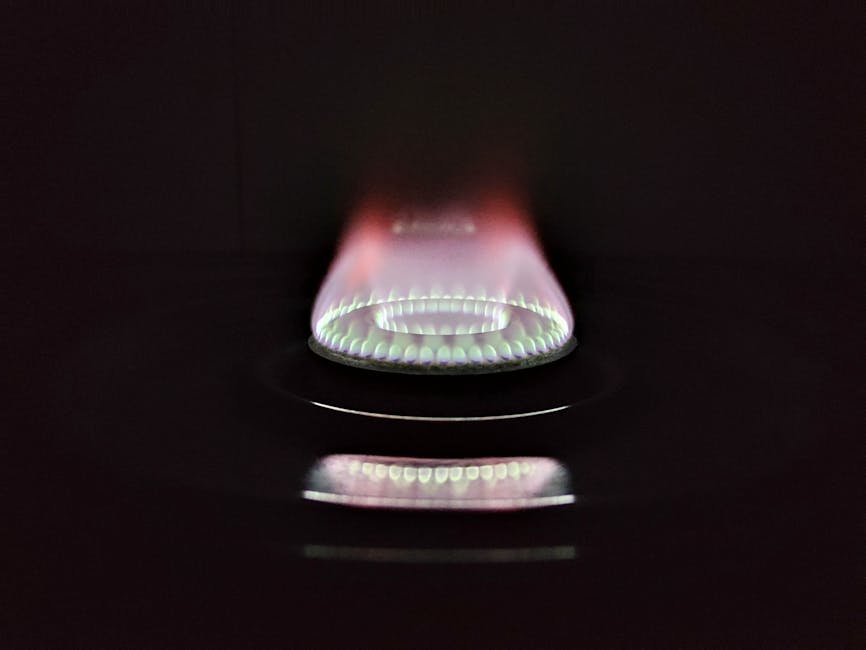Fuel Efficiency Tips for Drivers
Are you tired of constantly refueling your car and watching gas prices eat away at your budget? Do you want to reduce your carbon footprint and contribute to a greener environment? Fuel efficiency is the key to saving money, reducing emissions, and getting the most out of every drop of fuel you put in your tank. In this comprehensive guide, we will explore a variety of fuel efficiency tips for drivers that can help you maximize your vehicle’s performance and minimize your impact on the environment. Let’s dive in and discover how you can become a more fuel-efficient driver!
Understanding Fuel Efficiency

Before we delve into specific tips and strategies for improving fuel efficiency, it’s important to understand what fuel efficiency actually means. In simple terms, fuel efficiency refers to the amount of fuel a vehicle consumes in relation to the distance it travels. The higher the fuel efficiency of a vehicle, the less fuel it will require to travel a certain distance. This not only saves you money on gas but also reduces the amount of harmful emissions released into the atmosphere.
There are several factors that influence the fuel efficiency of a vehicle, including its make and model, engine size, weight, aerodynamics, driving habits, and maintenance practices. By making small changes to how you drive and maintain your vehicle, you can significantly improve its fuel efficiency and enjoy the benefits of lower fuel costs and a cleaner environment.
Proper Vehicle Maintenance

One of the most critical factors affecting fuel efficiency is the condition of your vehicle. Regular maintenance can significantly improve your car’s performance and fuel efficiency. Here are some essential maintenance tips to keep your vehicle running smoothly:
1. Keep Your Tires Inflated: Underinflated tires can increase fuel consumption by up to 3%. Check your tire pressure regularly and inflate them to the recommended level.
2. Change Your Air Filter: A dirty air filter can restrict airflow to the engine, reducing fuel efficiency. Replace your air filter regularly to ensure optimal performance.
3. Tune-Up Your Engine: Regular engine tune-ups can improve fuel efficiency by up to 4%. Schedule routine maintenance to keep your engine running at its best.
4. Use the Right Oil: Using the manufacturer-recommended grade of motor oil can improve fuel efficiency and extend the life of your engine.
5. Check Your Fuel Cap: A loose or damaged fuel cap can cause fuel to evaporate, reducing fuel efficiency. Make sure your fuel cap is secure and in good condition.
Driving Habits

How you drive can have a significant impact on your vehicle’s fuel efficiency. By adopting some simple driving habits, you can reduce fuel consumption and improve your overall efficiency. Here are some tips for fuel-efficient driving:
1. Drive Smoothly: Accelerating and braking aggressively can lower your fuel efficiency. Try to maintain a steady speed and anticipate stops to minimize fuel consumption.
2. Avoid Idling: Idling wastes fuel and emits harmful pollutants. Turn off your engine if you expect to be stopped for more than a minute.
3. Use Cruise Control: Using cruise control on the highway can help you maintain a consistent speed and improve fuel efficiency.
4. Reduce Speed: Driving at high speeds can significantly increase fuel consumption. Try to stay within the speed limit to maximize fuel efficiency.
5. Plan Your Trips: Combine errands into a single trip to reduce mileage and save fuel. Avoid unnecessary driving whenever possible.
Vehicle Optimization

There are several modifications and upgrades you can make to your vehicle to improve its fuel efficiency. While some of these changes may require an initial investment, the long-term savings on fuel costs can make them well worth it. Here are some vehicle optimization tips:
1. Install a Fuel-Efficient Tire: Low-rolling-resistance tires can improve fuel efficiency by reducing friction with the road surface.
2. Remove Excess Weight: Carrying unnecessary weight in your vehicle can decrease fuel efficiency. Remove items that you don’t need to lighten the load.
3. Use the Right Fuel: Using premium fuel in a vehicle that doesn’t require it will not improve performance or fuel efficiency. Stick to the manufacturer’s recommendations.
4. Aerodynamic Modifications: Adding aerodynamic enhancements such as a roof rack or spoiler can reduce drag and improve fuel efficiency.
5. Hybrid or Electric Vehicles: Consider switching to a hybrid or electric vehicle for significantly improved fuel efficiency and reduced emissions.
Alternative Transportation
Another way to improve fuel efficiency is to explore alternative modes of transportation that don’t rely on traditional gasoline-powered vehicles. By reducing your dependency on fossil fuels, you can significantly lower your carbon footprint and contribute to a cleaner environment. Here are some alternative transportation options to consider:
1. Public Transit: Taking public transportation can reduce the number of vehicles on the road and lower emissions. Check out bus and train routes in your area.
2. Carpooling: Sharing rides with friends, family, or coworkers can cut down on fuel consumption and reduce traffic congestion.
3. Cycling: Biking is not only a great form of exercise but also an eco-friendly way to get around. Consider biking to work or for short trips.
4. Walking: Walking is a zero-emission mode of transportation that is good for your health and the environment. Whenever possible, choose to walk instead of drive.
Expert Opinions
We reached out to several experts in the field of automotive engineering and environmental science to get their insights on fuel efficiency tips for drivers. According to Dr. Sarah Green, an environmental scientist at the University of California, “Improving fuel efficiency is a critical step towards reducing greenhouse gas emissions and combating climate change. By making small changes to how we drive and maintain our vehicles, we can all make a significant impact on the environment.”
Dr. John Smith, an automotive engineer with over 20 years of experience, adds, “Proper vehicle maintenance is key to maximizing fuel efficiency and prolonging the life of your vehicle. By following the manufacturer’s recommendations and staying on top of routine maintenance, you can ensure that your car continues to run smoothly and efficiently for years to come.”
Conclusion
To wrap things up, fuel efficiency is not just about saving money on gas but also about reducing your environmental impact and contributing to a cleaner, healthier planet. By implementing the fuel efficiency tips for drivers discussed in this guide, you can improve your vehicle’s performance, lower your fuel costs, and help build a more sustainable future for generations to come. Remember, every little change you make can make a big difference in the long run. So, why not start today and become a more fuel-efficient driver?
Whether you choose to optimize your vehicle, adjust your driving habits, or explore alternative transportation options, there are plenty of ways to improve fuel efficiency and make a positive impact on the environment. So, the next time you hit the road, remember these fuel efficiency tips and drive smarter for a greener tomorrow.


